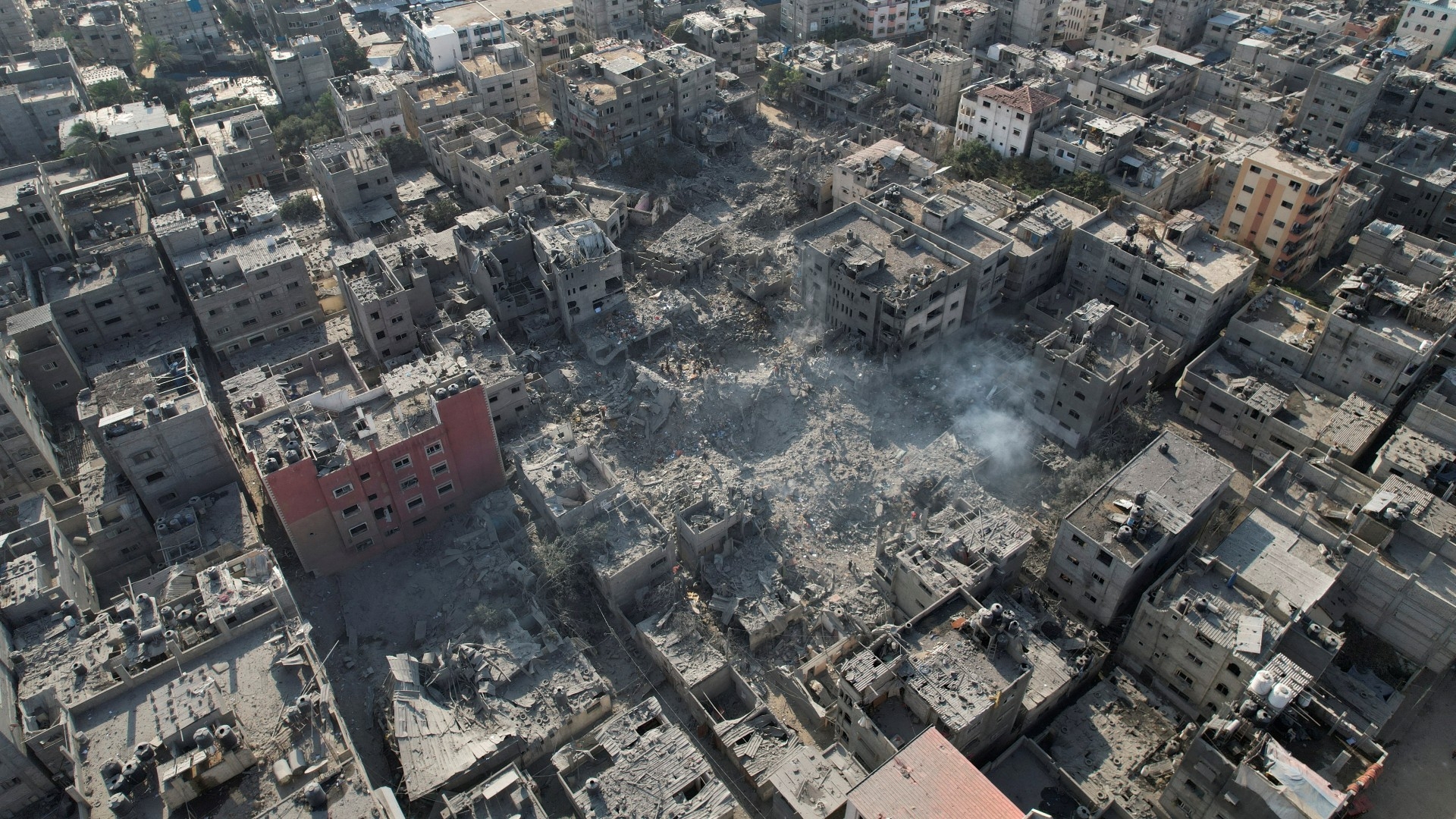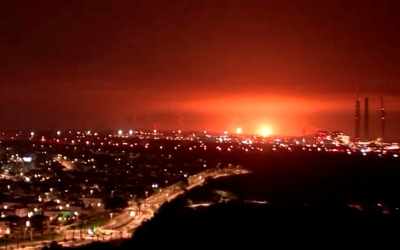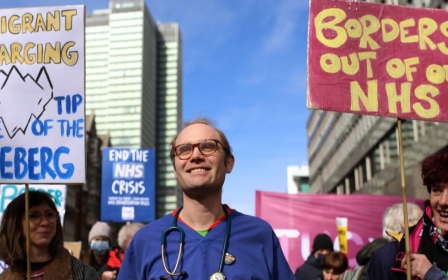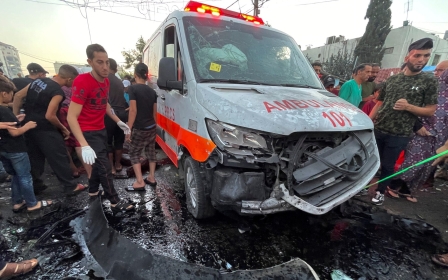Israel-Palestine war: Why some Palestinians who left Gaza want to return home now

Rania and her husband, Khaled, left Gaza for life-saving chemotherapy treatment in Jordan a few months ago.
The couple, who are in their 60s and parents of six, were diagnosed with cancer years ago.
They were supposed to come back to Gaza in November.
However, the devastating full-scale Israeli war on Gaza, in which the Israeli air force has killed at least 9,770 Palestinians, including 3,826 children, following Hamas’s attack on Israel on 7 October, claiming 1300 Israeli lives, has forced them to remain in Jordan, far away from their sons in the strip.
“The physiological factor is very important in cancer treatment. Our sons, house and families are in Gaza," Khaled told Middle East Eye. "This has placed a heavy psychological burden on us, especially on Rania, as cancer has spread throughout her body.”
New MEE newsletter: Jerusalem Dispatch
Sign up to get the latest insights and analysis on Israel-Palestine, alongside Turkey Unpacked and other MEE newsletters
When they read news of daily bombardments in Khan Younis city, in the south of the strip, where their sons reside, they rush to call them.
But due to the lack of internet and poor telecommunication network, they have to make dozens of call attempts to reach their sons, which increases their anxiety about their safety.
“We were supposed to return home soon, but now I don’t know what to do," he said.
"If the war continues, we will have to wait for the opening of Rafah crossing. But if it lasts for a long time, I don’t know how we can support ourselves financially.”
Follow our live blog for all the latest on the Israel-Palestine war
Rami, a 26-year-old medullary cancer patient, is in Khaled’s shoes.
He left Gaza a few months ago to Jordan for treatment but his life has turned into chaos since the hostilities erupted.
He said the war has compounded his suffering. While he left Gaza via the Israeli Erez crossing, now closed, he does not know how he will return to Gaza.
"I feel regret as I am away from my family in such a situation. If I didn’t have cancer, I would be with my family now,” Rami said, adding that, like Khaled, he struggles to reach his family by phone due to the lack of network.
"It's a consistent source of anxiety," he said.
'Alive with a dead soul'
Hala Shoman, a PhD student in the UK, left Gaza two weeks before the war to pursue a two-month academic endeavour. Her intention was to return to her family and work in the Strip.
Although she is achieving her academic aim, the war has left her in anguish, especially over her family’s suffering.
'I wish I hadn’t travelled and stayed with my family. I am alive, but with a dead soul'
- Hala Shoman, PhD student in the UK
She told MEE that her family has evacuated from Gaza City to Rafah in the south after a residential building near their home was bombed overnight, two weeks ago. She says it was without warning from the Israeli army.
"I read the devastating news. It took me hours to manage to call them," she said.
"Luckily, they survived by a miracle."
Later, she learnt that the homes of all her brothers and family had been completely or partly damaged.
"My elderly parents, siblings and I used to sleep in the same room in wars in case we were bombed, we would be killed together," she recalled.
"I wish I hadn’t travelled and [instead] stayed with my family. I am alive, but with a dead soul," she said.
Shoman added that she is concerned about a potential prolonged closure of Gaza crossings, as happened in the past, since that will extend her separation from her husband, family and work.
Scars from previous wars
The previous Israeli wars on Gaza have left deep scars for many Palestinians who left the Strip, such as Asil Nassir, who is a master’s student in business analytics in Dublin.
Although she is in a safe city, Nassir, 24, is still haunted by her fear of loud noises, such as ambulance sirens, planes and fireworks.
“I’ve been suffering from war-related obsessions. I haven’t healed from the trauma of the previous wars yet," she told MEE.
Like thousands of Palestinians, her family evacuated the north of Gaza to the south after Israeli warnings. But nowhere is safe since, even after they left the north, the Israeli army has repeatedly bombed areas in the southern Gaza Strip, as well as targeting roads linking the north and south.
Since they left their homes, they have been struggling to get hold of basic life necessities like water, gas, electricity and food.
"I am scared to death about them, and of the spectre of a second Nakba. I don’t know how I will return to Gaza after a few months," she said, echoing the fears of many people in Gaza of a second mass displacement or ethnic cleansing of the Palestinians.
"Last week, my father told me that they didn’t have drinkable water. I broke down in tears," she said.
Due to the news from Gaza, Nassir has been seeing a psychiatrist for mental health support.
"My mind has been completely preoccupied by the worst scenarios and my family’s safety. They bombed our two flats in a residential tower in Tal Al-Hawa neighbourhood last week," she told MEE.
"They have reduced Gaza to rubble. I wish I was with my family now. It would be much easier for me.”
Middle East Eye delivers independent and unrivalled coverage and analysis of the Middle East, North Africa and beyond. To learn more about republishing this content and the associated fees, please fill out this form. More about MEE can be found here.





